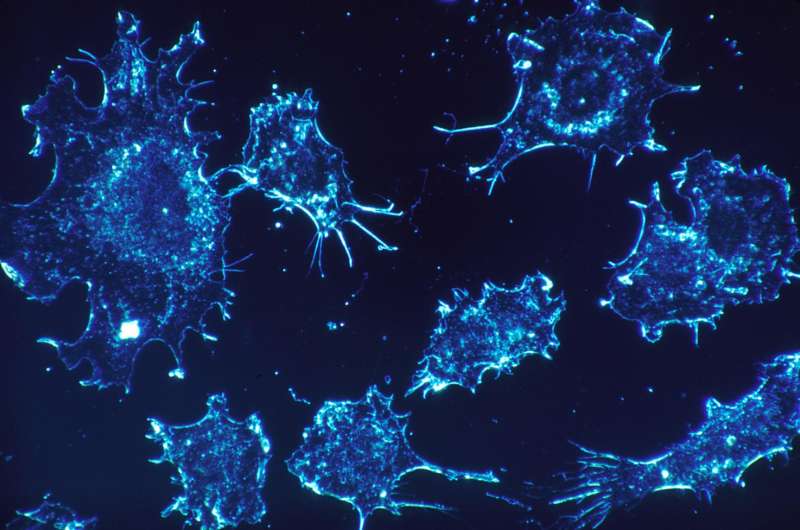How the immune system responds to tissue damage can aid cancer spread

Researchers at the Francis Crick Institute have uncovered how a process involved in the regeneration of tissue damaged by radiation can aid the spread of cancer.
The spread of cancer around the body is a complex process and understanding more about how it happens is vital to the development of new treatments.
In their study, published in Nature Cancer today, the scientists investigated the relationship between healthy tissue repair and cancer growth.
They exposed healthy mouse lungs, a site where it is common for many cancers to spread, to a high dose of radiation in order to damage the tissue. They then tested the potential of breast cancer cells to grow in the damaged area in comparison to the uninjured lungs. More cancer cells spread to the lungs and began forming secondary tumors in mice that had been injured by radiation compared to the mice who had not.
Further experiments revealed that this is due to the signaling of neutrophils, a type of immune cell, which help repair tissue damage. When the researchers blocked signaling from the neutrophils in the injured lungs, secondary tumors were greatly reduced.
Emma Nolan, first author and postdoc in the Tumor-Host Interaction Laboratory at the Crick, says: "This is a situation where tissue damage sets the stage for the spread of cancer and, in trying to repair the damaged tissue, the immune system inadvertently aids the cancer. This role of neutrophils in supporting cancer spread is something which needs further research and could potentially help to identify new ways to treat the disease."
Ilaria Malanchi, author and group leader of the Tumor-Host Interaction Laboratory at the Crick, says: "The relationship between cancer cells, the immune system and the organ where cancer takes hold is highly complex. And it's by untangling aspects of this web that we can better understand why cancer is able to spread, what predisposes organ to the arrival of cancer cells and ultimately how we can try to stop this."
It is important to note that the radiation that was given to the mice in this study was a higher dose than is used for radiotherapy treatment in hospital and targeted a significantly larger proportion of the tissue. Thanks to advancing technology, the exposure to radiation is now restricted to cancerous tissue and indeed radiotherapy represents a powerful weapon to control cancer disease.
Ilaria adds: "Unrevealing the new responses of neutrophils to radiation we described here, could further enhance the efficacy of this highly-regarded treatment for cancer."
More information: Ilaria Malanchi, Radiation exposure elicits a neutrophil-driven response in healthy lung tissue that enhances metastatic colonization, Nature Cancer (2022). DOI: 10.1038/s43018-022-00336-7. www.nature.com/articles/s43018-022-00336-7



















